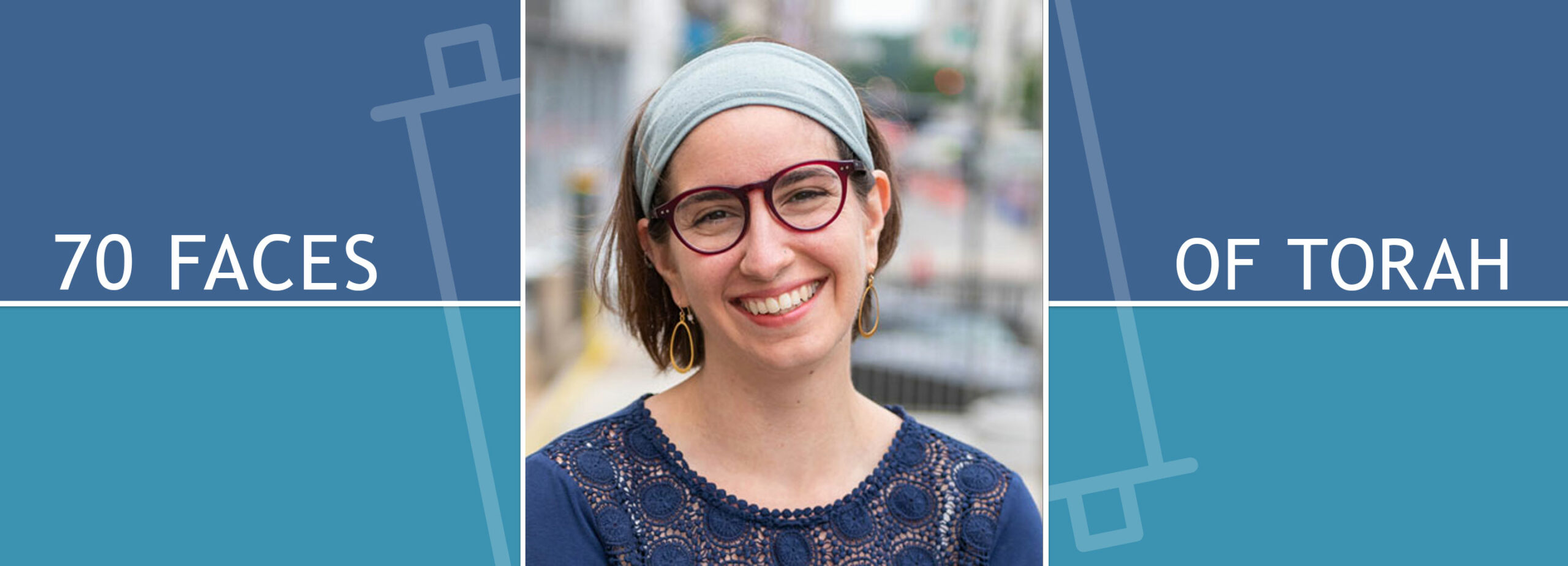Genesis They Say: There Is A Land

Parashat Lech Lecha Genesis 12:1-17:27
The land that I imagine when I read God’s promise to Avraham doesn’t match up with the Israel I see today. In Lech Lecha, God says, “Go forth from your native land and from your father’s house to the land that I will show you.” Later in Exodus, God adds detail to this promise, describing it as “a good and spacious land, a land flowing with milk and honey.” When I think of the land that we’ve come to call the promised land, I imagine spaciousness, I imagine peace, I imagine rivers of milk and honey. This is a far cry from the reality in Israel today.
It’s true there were early indicators in the Torah that it might not be all moonlight and roses in the land of Israel. Even our verse from Exodus which promises goodness and spaciousness, also indicates that this land belongs to someone else; it’s a settled land home to a number of nations. Later in Exodus, God promises to drive out all of these nations in order to allow us to make this land our home. But even then, with the inevitability of violence and war in the early settling of this new land, I always imagined that period would be finite, giving way to years of peace. I did not expect the reality of Israel to align with mythic visions of a land flowing with milk and honey, but I did imagine it could be a place for the Jewish people to finally settle and call home.
While there is much beauty in the land of Israel, these days we are well aware that it is a land that flows not with milk and honey, but with far too much blood. Israel is a land that has been ravaged by a continuous cycle of violence. A country so deeply divided that even families of hostages are subject to violence by their own people. There are families barely managing with parents and children who are absent, fighting a war without a clear end. There is fear, there is uncertainty, there is blood.
And, there is also goodness. There are markets bustling with people, fruits and vegetables heaped high. There is a language with its roots in the Torah, a language of holiness and poetry. There are people that I love. People who are at times fierce and compassionate and sometimes fiercely compassionate, driven and creative, building a community on holy soil. But, for me, this goodness right now is overshadowed by the suffering of our own people and the suffering of Palestinians, amidst a cycle of war. This is not the land that I imagine God promised to Avraham and this is not the Israel that I want.
In 1923 in Berlin, Russian-born poet Shaul Tchernichovsky wrote a poem called “Some say: There is a land.” Waiting to make aliyah to Israel and delayed in his efforts, he writes with doubt and longing for the land he’s heard talk of yet doesn’t seem to exist for him.
At the beginning of his poem, he writes, “They say: there is a land/A land bathed in sunlight/Where is that land/Where is that sun?” Throughout the poem, he continues asking, “Where is that land? Who will guide us?” Finally, in the last stanza, with a sense of defeat and growing sense of hopelessness he writes, “How did we get lost?…That sunlit land/That we have not found./Perhaps… it no longer exists?” While written in Berlin before the creation of the State of Israel, his sense of longing for a land of which he’s heard, a promised land of sorts that he fails to find, resonates deeply. Today, I wonder: where is that land that God promises Avraham again and again in the Torah, that land that is good and spacious? How did we get lost? Perhaps… it no longer exists?
R. Shalom Noah Berezovsky, a 20th century Hasidic rabbi, teaches that the phrase, “from your land, from your birthplace, from your parents’ house,” speaks to the negative characteristics contained within our land that we are required to fix in order to get to the land that God will show us. He writes, “Every land has negative characteristics associated with it like murder and theft whose roots are spread out amongst all of the people.” While he wasn’t talking about Israel, I think of the bloodshed that is at Israel’s roots, the blood of our own people and the blood of others who also call this land their home.
R. Berezovsky writes that the second part of the command lech lecha, with the emphasis on lecha or to yourself, teaches that no two people are alike and we each have unique work we have to do in the world to make it better. According to R. Berezovsky, God is teaching us that the word lecha means we have to do our own personal work: we need to fix what is wrong in the lands of our origin in order to get to see the land that God is showing us. Only once we fix what is wrong at home, will we arrive at the place of “the land that I will show you.”
While R. Berezovsky is talking about fixing that which is wrong at our land of origin, I wonder if we couldn’t read this to be about fixing what is wrong in the land of our destination. We haven’t yet arrived at the place of “the land that I will show you,” because from the moment of its inception, Israel has had to fight for its existence and its fate depends on the continued loss of life required to maintain its freedom. Until we find a correction for this, we, like Tchernichovsky, will continue to feel the shimmer of a sun-drenched land out of reach, a promise of goodness and spaciousness that is nowhere to be found.
In the early days after October 7th, Rabbi Avital Hochstein offered this reading on God’s promise to Avraham to bring him “to the land that I will show you.” She said, “I feel like my responsibility is to try to understand what is the land that God is showing me? What does it look like? I am one hundred percent sure it’s not the land the way it looks now…What vision does God have for us now for the land that He wants us to build here? ”
The mythic vision of Israel that the Torah lays out for us may fall short of our current reality but we are still dreamers, like our ancestors of the Torah, longing for a land of safety, of peace, and of holiness. In Psalm 126, we read, “When God brought about the return to Zion, we were like dreamers.” We were dreamers then, when we returned to the land, and we will continue to dream now, seeking to understand God’s vision and to build it through our own hands. Tchernichovsky wrote, “They say: there is a land…” May we hope to see a glimpse of that promised land in our lifetime.
Rabbi Avi Strausberg ’15 is the Senior Director of National Learning Initiatives at Hadar, and is based in Washington, DC. She received her rabbinic ordination from Hebrew College in Boston and is a Wexner Graduate Fellow.
Meet students and faculty at one of our fall open houses, Ta Sh’ma (Come & Hear) November 18 (in-person) or online (Dec. 8). Learn more and register.
Explore Graduate Programs Tamid Adult Learning Classes Support Our Work


